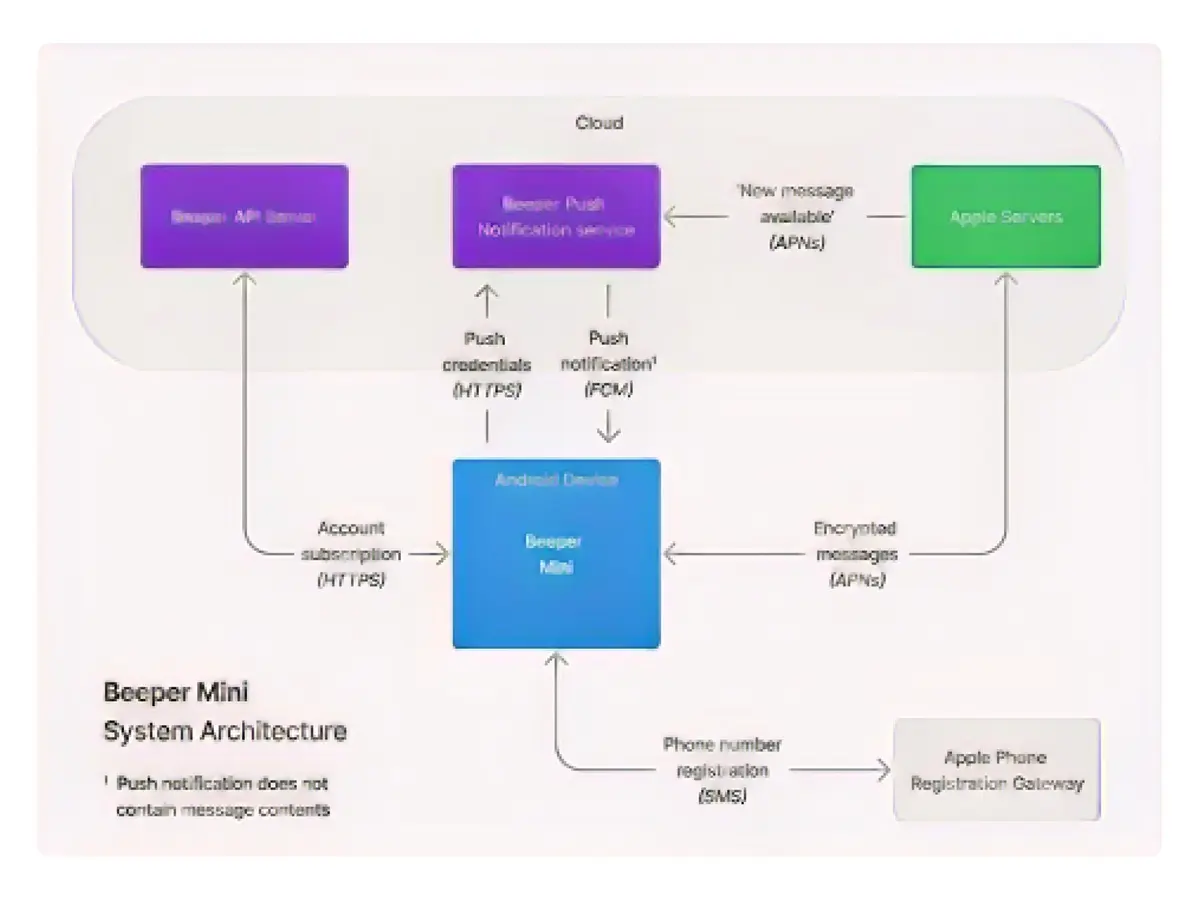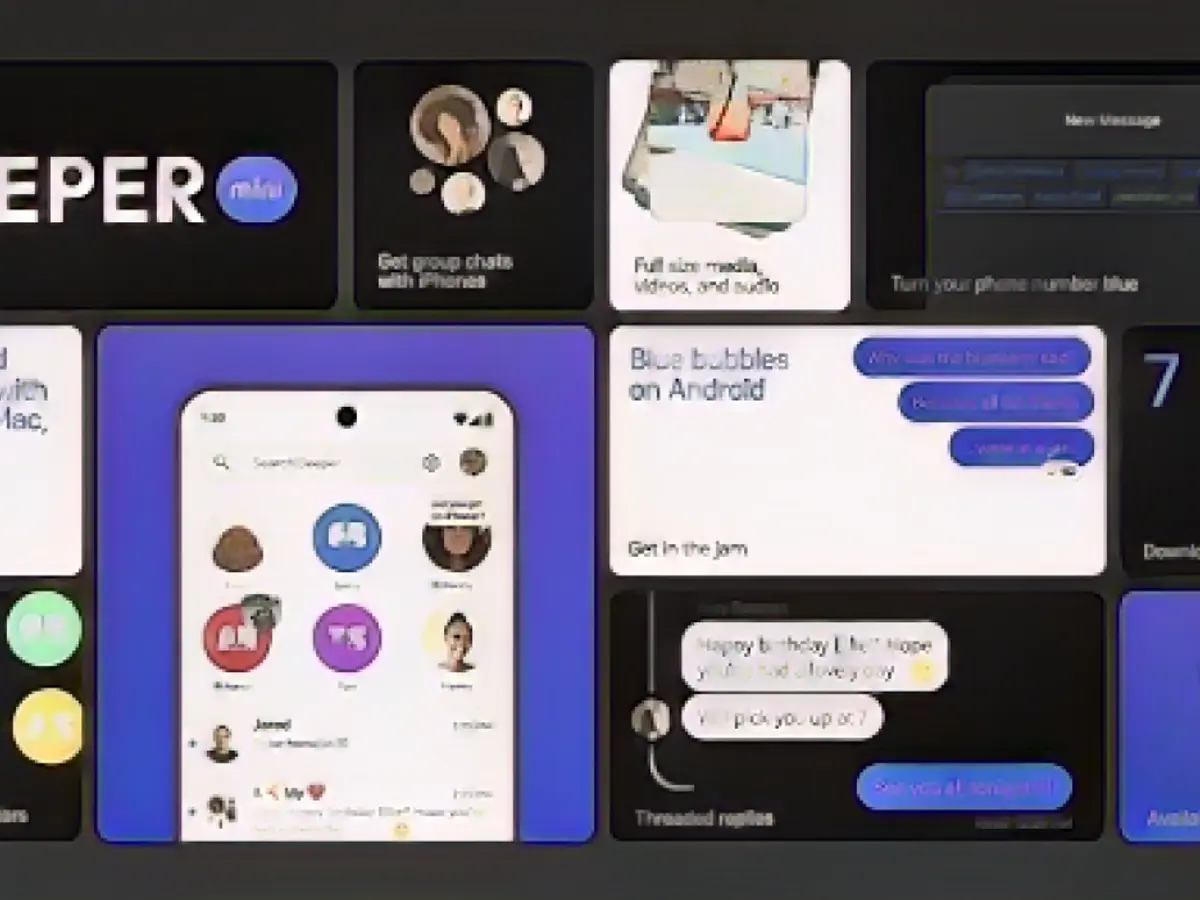Unlocking the Dream of Android iMessage with Beeper Mini
When Beeper announced its iMessage-on-Android solution in August, I was skeptical. Despite the tantalizing allure of turning those irritating green bubbles blue, the idea posed several unaddressed concerns.
The main hurdle lies in routing Android messages to Apple servers and presenting them as iMessages on iOS devices. To achieve this, users must log in to their Apple ID on a Mac Mini in the Beeper farm. While Beeper does not have access to the contents of the messages, a single successful hack could compromise Apple ID tokens, exposing users' accounts to anyone eager to steal them.
Last month, Nothing attempted a similar feat by partnering with Sunbird to offer iMessage on Android through its Nothing Chats app. However, the app was promptly removed from the Play Store after researchers discovered it stored login information in plaintext. If a hacker gains access to the server, they can read users' messages and codes as easily as the alphabet. This is far from end-to-end encryption.
With these concerns in mind, Beeper's promise of sending iMessages from Android devices seemed dubious at best. But when Beeper claimed to have discovered a new method that resolved all these security concerns, I remained skeptical, albeit intrigued.
Mini Marvels
On Tuesday, Beeper announced "Beeper Mini," a new solution for sending and receiving iMessages on Android devices. Unlike the original Beeper app, Beeper Mini does not rely on a Mac-based relay to send iMessages over Apple's servers. Instead, the app creates a direct connection to Apple servers and sends messages directly to them. This emulates the same interactions between iPhones that support iMessage, effectively tricking Apple into considering your Android device as an iPhone.
Thanks to the work of a researcher named jjtech, Beeper Mini is capable of intercepting and relaying messages between Android devices and Apple servers, effectively transforming your messaging experience. Beeper purchased jjtech's research clarifying the workings of Apple's iMessage protocol and collaborated with him to develop Beeper Mini. The app can send messages from Android to Apple servers and forward them to their intended recipients, all while Apple sees only the Apple device's serial number. From this moment on, Apple views your device as one of their own, happily accepting and forwarding your encrypted messages as needed.
Moreover, Beeper Mini does not share your private decryption keys with Apple or Beeper. Instead, it only encrypts your messages when you hit "send." The message remains encrypted until it reaches its destination, much like a genuine iMessage between iPhones.
Beeper is proud of this achievement and has invited security researchers to test the technology. Beeper encourages anyone interested in the technology to try it out themselves, by running the open source Python Proof of Concept on their computer or checking out the implementation in Snazzy Lab's full-service solution. It's mesmerizing to consider that most iMessages can run in Python, while Apple has maintained its hold on this technology since its inception.
Post-installation, users will immediately notice that many iMessage features work seamlessly. You can easily send and receive messages, edit messages, and retrieve them if needed. Participating in group chats and sending high-resolution media to other iPhones is also a breeze. Some features like location sharing, FaceTime integration, iMessage effects, and games are currently unavailable, but they may be irrelevant to most users who are simply relieved to avoid ruining group chats.
Are there security concerns?
Beeper Mini offers an appealing solution, with neither Apple nor Beeper having access to users' messages. Yet, some noteworthy concerns arise. Consequently, Beeper Mini implements a few unusual procedures.
Since Android does not support Apple Push Notification (APN), Beeper Mini cannot push notifications to users without them actively using the app. To overcome this, Beeper Mini introduced Beeper Push Notifications (BPNs) that communicate with Apple servers to identify when new messages await users. Beeper explained that, while this feature might raise security eyebrows, it is ultimately secure: Apple allows Beeper to locate new messages without the need for decryption keys.

This method means that BPN can only identify messages awaiting decryption, not read messages. When a new message is detected, the connection to the APN is severed and the Beeper Mini app alerts the user. The user can then retrieve the new message as if they had opened it manually, and Android will send a Push notification for the new iMessage.
This feature may surprise some security-conscious users and Beeper provides an option to disable it. Users will need to manually open Beeper Mini every time they check for new messages, but this reassures users who are wary of relying on third-party apps for iMessage access.
Another unique aspect of Beeper Mini arises when users want to send and receive messages on an iPad or Mac. While only a phone number is required for phone-only communication, users must log in with their Apple ID to enjoy the full scope of Apple's devices. This may be disconcerting, as Beeper Mini appears to not require an Apple ID for initialization. However, this is a necessary evil to establish a Beeper Mini phone number in conjunction with an iPad and/or Mac.
Despite these quirks, I remain cautious. While the technology is promising, it's wise to wait and see how the service unfolds. However, to my satisfaction, it looks promising overall.
Another point of contention arises from Beeper Mini's claim to making text messaging between Android and iPhone "safer." SMS is notoriously insecure, and Beeper Mini offers an end-to-end encryption service. Users have an exciting task at hand.
Will Beeper Mini be successful?
Beeper Mini faces a few potential hurdles:
- Apple's Displeasure:
- Apple will likely not be pleased with its creation being used in a third-party app, possibly leading to future issues for Beeper Mini. (Thank you, jjtech.)
- RCS Support:
- Apple announced plans to enable RCS support for Android-iPhone messaging later this year. If the 'green bubbles' crisis subsides significantly by 2024, will users still be interested in using Beeper Mini? Ultimately, the quality of SMS messaging between smartphones may make bluing bubbles unnecessary.
Currently, Beeper Mini offers a promising alternative for text messaging between Android and iPhone. However, the potential success of Beeper Mini depends on Apple's response and users' willingness to engage with this alternative.
Beeper Mini is now available in the Play Store for $1.99 per month, with a 7-day free trial.
Further Reading:
Enrichment Data:
Using Beeper Mini for iMessage on Android raises several concerns:
- Apple's Blocking Mechanism:
- Beeper Mini has faced connectivity issues due to Apple's intentional blocking of iMessages, affecting approximately 5% of users. This suggests that Apple may not fully support third-party apps using its iMessage service, potentially leading to security vulnerabilities or disruptions.
- Jailbreaking Requirement:
- To circumvent Apple's restrictions, Beeper Mini encourages users to generate their iMessage registration data using a jailbroken iPhone. This introduces additional risks associated with jailbreaking, including increased vulnerability to malware and other security threats.
- Lack of Official Support:
- Since Beeper Mini operates by identifying text message conversations from iMessage users and converting them to blue bubbles, it may not have the same level of security and encryption as the official iMessage service. This could expose user data to potential interception or eavesdropping.
- General SMS and RCS Security Issues:
- Both SMS and RCS lack end-to-end encryption, making them vulnerable to interception and metadata theft. This is a broader issue affecting all messaging services, not just Beeper Mini, but it highlights the need for more secure communication methods.
- Unauthorized App Usage:
- The use of third-party apps like Beeper Mini to access iMessage services may not be fully compliant with Apple's terms of service, potentially leading to account suspensions or other security-related issues.
In summary, while Beeper Mini aims to provide iMessage functionality on Android devices, its reliance on workarounds like jailbreaking and Apple's strict policies introduces several security concerns. Users should be cautious and consider these potential vulnerabilities before using such third-party solutions.





